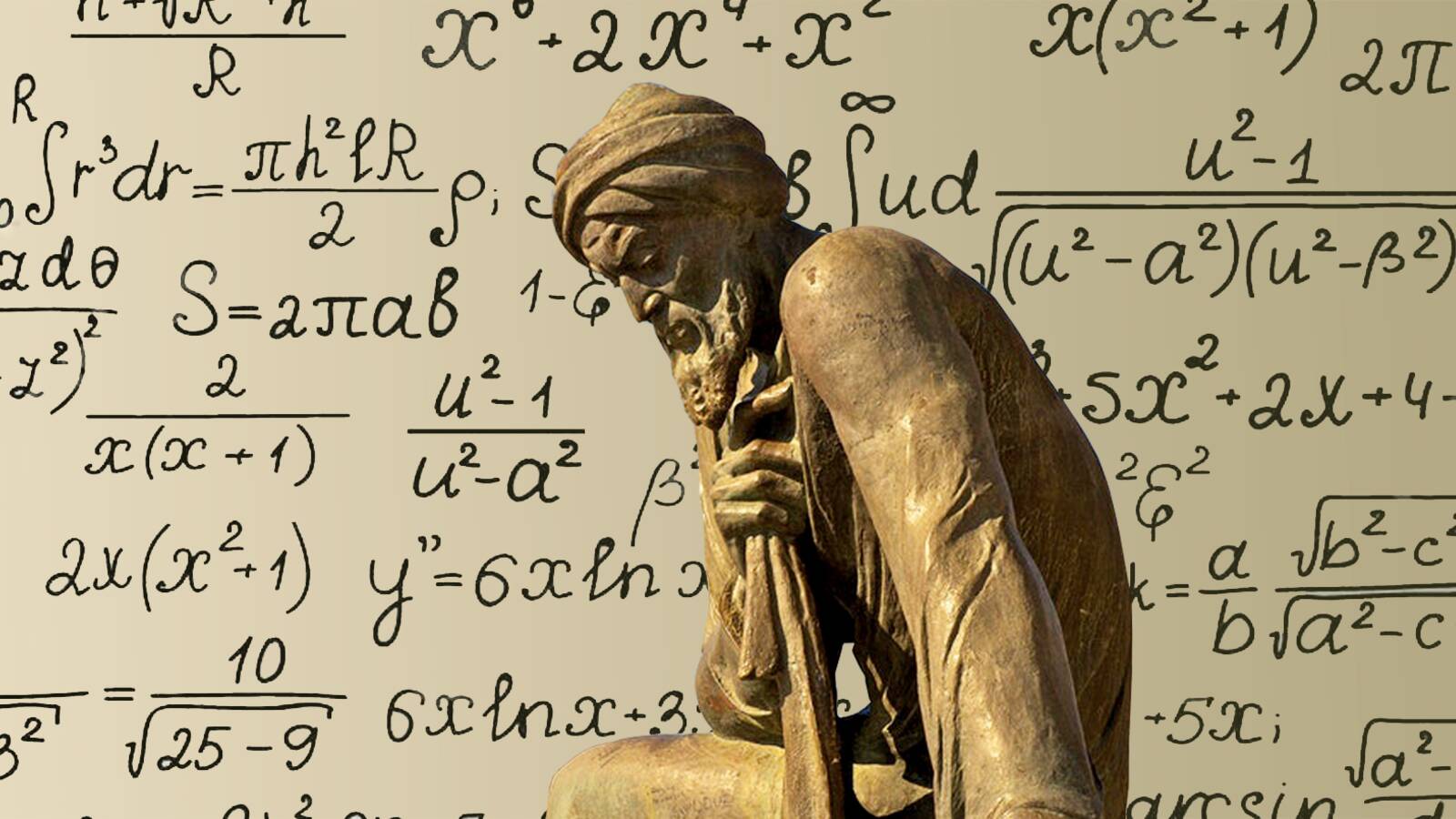
Muḥammad ibn Mūsā al-Khwārizmī, the famous mathematician, astronomer, geographer, and historian, was born in 185 AH. There is no information in historic texts about his childhood and adolescent, or when he and his family entered Baghdad. The era which he lived in was known as Islamic golden age, a period of cultural, economic and scientific flourishing in the history of Islam, which its center was Iran, and when Harun al-Rashid or Al-Ma'mun ruled the Eastern Caliphate (The governmental center of western Caliphate was Al-Andalus in Spain, where the Umayyads were the rulers).
Being transferred from Academy of Gondishapur, there were the Jews and the Nazarene who worked as medicines. Iranians did all the paperwork, accounting, and documentation, and scientists brought the scientific and philosophy books to the library of the House of Wisdom from all around the world, a public academy which began to work in the time of Caliph Harun al-Rashid and developed greatly during his son, Al-Ma'mun, with whom Khwārizmī’s life coincided. His first work in Baghdad was producing sine tables regarding the achievements of Ptolemy and Indian scientists. He studied and compared them so his tables are far more accurate than theirs and the Greeks’. His writings in astronomy and geography influenced considerably the next scientific researches. For instance, Maslama al-Majriti compiled new astronomical calculations and tables regarding Khwārizmī’s astronomical and astrological data, and it is al-Majriti’s tables that have been the principal resources for western European astrologers’ research.
Kitāb Ṣūrat al-Arḍ (Book of the Description of the Earth) should be considered as the first scientific work in the new flourishing period of geography. Influenced by Iranian culture, Khwārizmī tended to categorize all countries into seven. His book, Kitāb al-mukhtaṣar fī ḥisāb al-jabr wal-muqābala (The Compendious Book on Calculation by Completion and Balancing), is a magnificent work in mathematics history and a resource in Iranian mathematical researches having practical approach during the important period of mathematics evolution. Later, the book was translated in Latin and it was the only mathematics textbook in Western Europe.
The name of algebra comes from the title of this book and algorithm has its roots in Latinizing Khwārizmī’s name (at first, al-Khwārizmi was changed to Algorismus and step by step, it was converted into algorithm). This is a preliminary book, which aims to provide people what they need constantly in calculating heritage and will and etc. He wrote at the beginning of the book: “I was overwhelmed with making the ambiguous problems clear and make the scientific issues easy, so I wrote a book in algebra…”
Khwārizmi passed away in 233 AH in Baghdad.